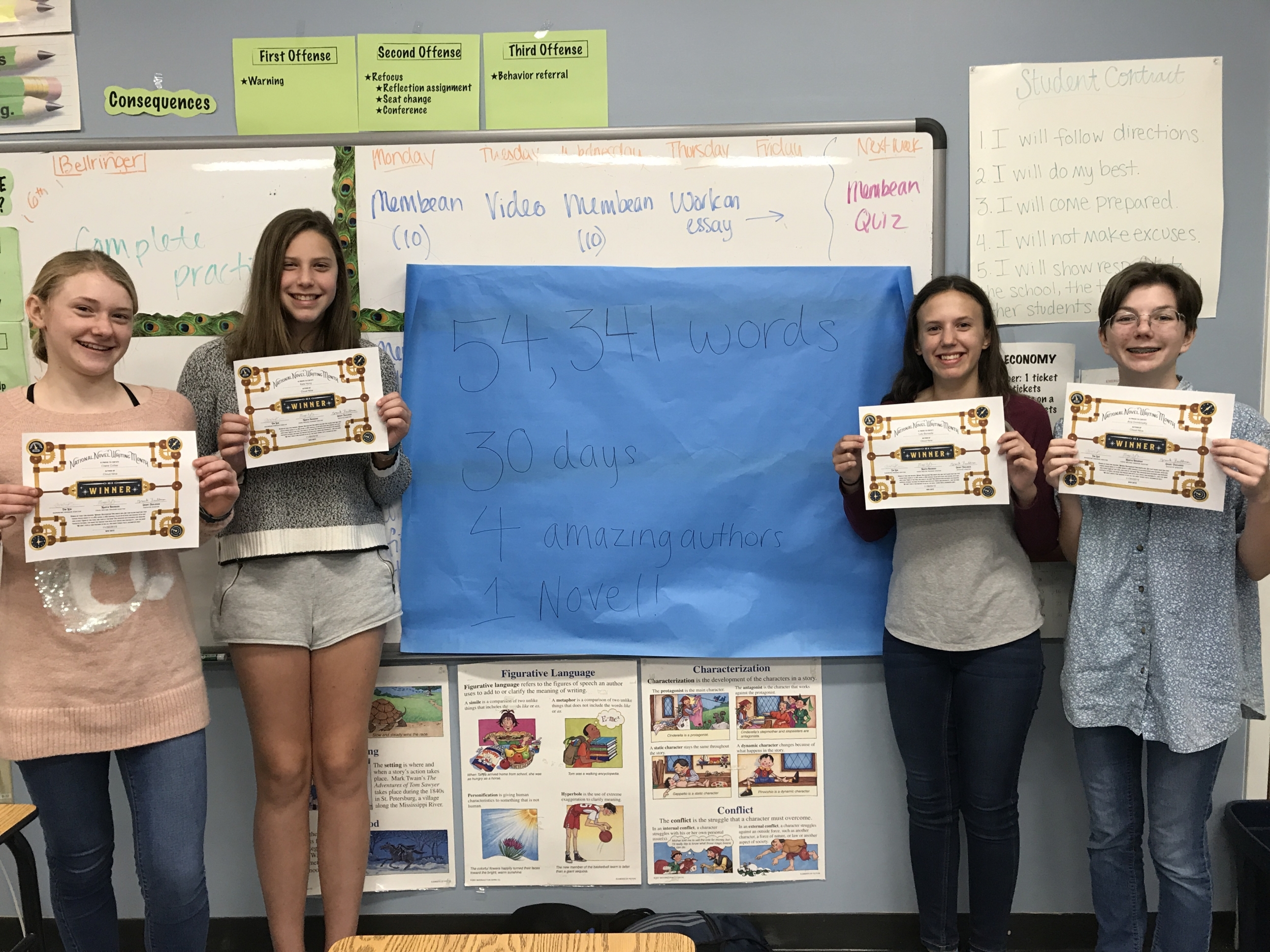By Triangle Day School
November 21, 2019
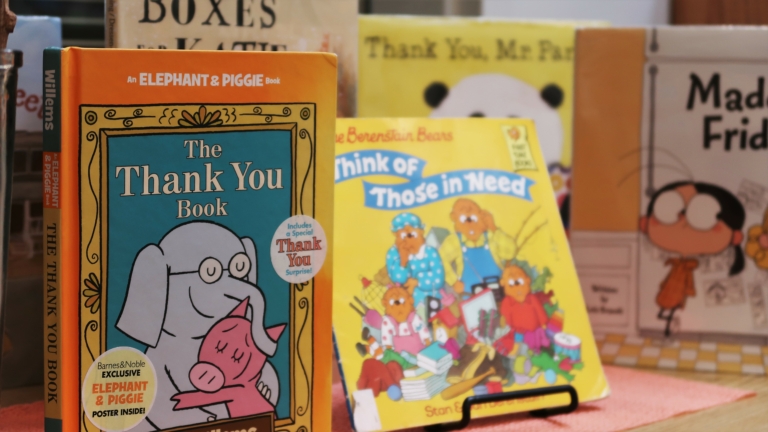 With Thanksgiving only a week away, I trust that many of us are anticipating some time-honored family traditions. As a kid, I looked forward to a family football game, a crowded dinner table, my Aunt Rosemary’s pies, and my uncles engaging in a protracted, boring conversation about politics. Thanksgiving is a time when we all feel encouraged to slow down, count our blessings, and express thanks for the many wonderful people in our lives.
With Thanksgiving only a week away, I trust that many of us are anticipating some time-honored family traditions. As a kid, I looked forward to a family football game, a crowded dinner table, my Aunt Rosemary’s pies, and my uncles engaging in a protracted, boring conversation about politics. Thanksgiving is a time when we all feel encouraged to slow down, count our blessings, and express thanks for the many wonderful people in our lives.
While not wanting to detract from this national holiday, my question is a simple one: why do we wait until late November to do this?
Much has been written in recent years to document the positive effects that expressing gratitude has on one’s physical and psychological health. Reviewing several studies, Harvard researchers conclude that “gratitude helps people feel more positive emotions, relish good experiences, improve their health, deal with adversity, and build strong relationships.” An article appearing in Positive Psychology finds that gratitude is associated with greater empathy, more sleep, and even more regular exercise.[su_row][su_column size=”1/2″]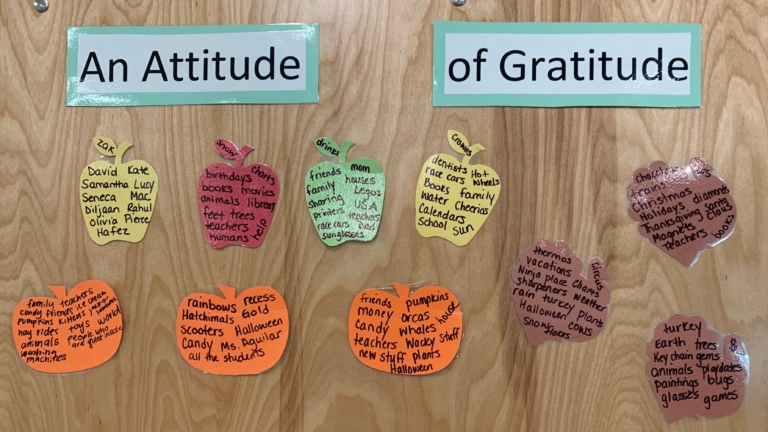 [/su_column][su_column size=”1/2″]
[/su_column][su_column size=”1/2″]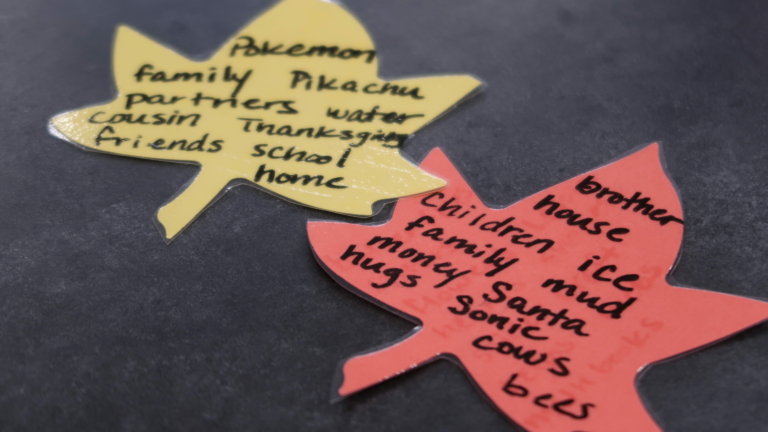 [/su_column][/su_row]
Is it really that easy? Does simply saying thank-you lead to this plethora of positive outcomes? My sixth grade math students would point out – correctly! – that we should be wary of confusing correlation and causation. Perhaps healthier, more empathetic people are naturally more grateful, or perhaps all of these stem from another variable entirely. Attempting to address this issue, researchers have run controlled experiments in which subjects are asked to keep a journal for several weeks. One group is specifically advised to keep a gratitude journal; they spend their time writing detailed notes about things for which they are grateful. Typically, researchers find this “gratitude group” to be healthier – as defined by several metrics – at the conclusion of the experiment.
[/su_column][/su_row]
Is it really that easy? Does simply saying thank-you lead to this plethora of positive outcomes? My sixth grade math students would point out – correctly! – that we should be wary of confusing correlation and causation. Perhaps healthier, more empathetic people are naturally more grateful, or perhaps all of these stem from another variable entirely. Attempting to address this issue, researchers have run controlled experiments in which subjects are asked to keep a journal for several weeks. One group is specifically advised to keep a gratitude journal; they spend their time writing detailed notes about things for which they are grateful. Typically, researchers find this “gratitude group” to be healthier – as defined by several metrics – at the conclusion of the experiment.
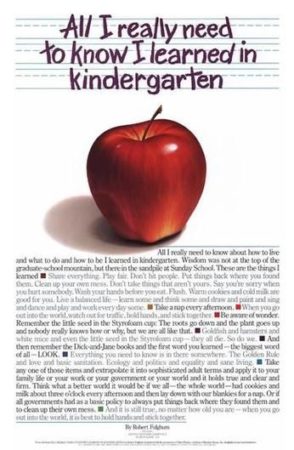 Robert Fulghum wrote All I Really Need to Know I Learned in Kindergarten thirty-three years ago. It rose to the top of the New York Times Bestsellers List, and more than seven million copies have been sold. While Fulghum’s work is best characterized as a credo about what’s important in life, it’s true that the Kindergarten year at TDS lays a solid foundation for continued growth and progress. This includes learning several powerful habits. As we teach the ABCs, we engender a love of reading. As we teach social-emotional skills, we instill positive habits such as being proactive and “thinking win-win.” Near the top of this list is the habit of expressing gratitude. Frequently during circle time, Kindergartners are asked to express one thing that they are thankful for. Often, new responses find their way onto the wall. For their sake, I hope our Kindergartners carry this habit of gratitude throughout their entire lives. We clearly have much to learn from them.
Robert Fulghum wrote All I Really Need to Know I Learned in Kindergarten thirty-three years ago. It rose to the top of the New York Times Bestsellers List, and more than seven million copies have been sold. While Fulghum’s work is best characterized as a credo about what’s important in life, it’s true that the Kindergarten year at TDS lays a solid foundation for continued growth and progress. This includes learning several powerful habits. As we teach the ABCs, we engender a love of reading. As we teach social-emotional skills, we instill positive habits such as being proactive and “thinking win-win.” Near the top of this list is the habit of expressing gratitude. Frequently during circle time, Kindergartners are asked to express one thing that they are thankful for. Often, new responses find their way onto the wall. For their sake, I hope our Kindergartners carry this habit of gratitude throughout their entire lives. We clearly have much to learn from them.
Doug Norry
Head of School
